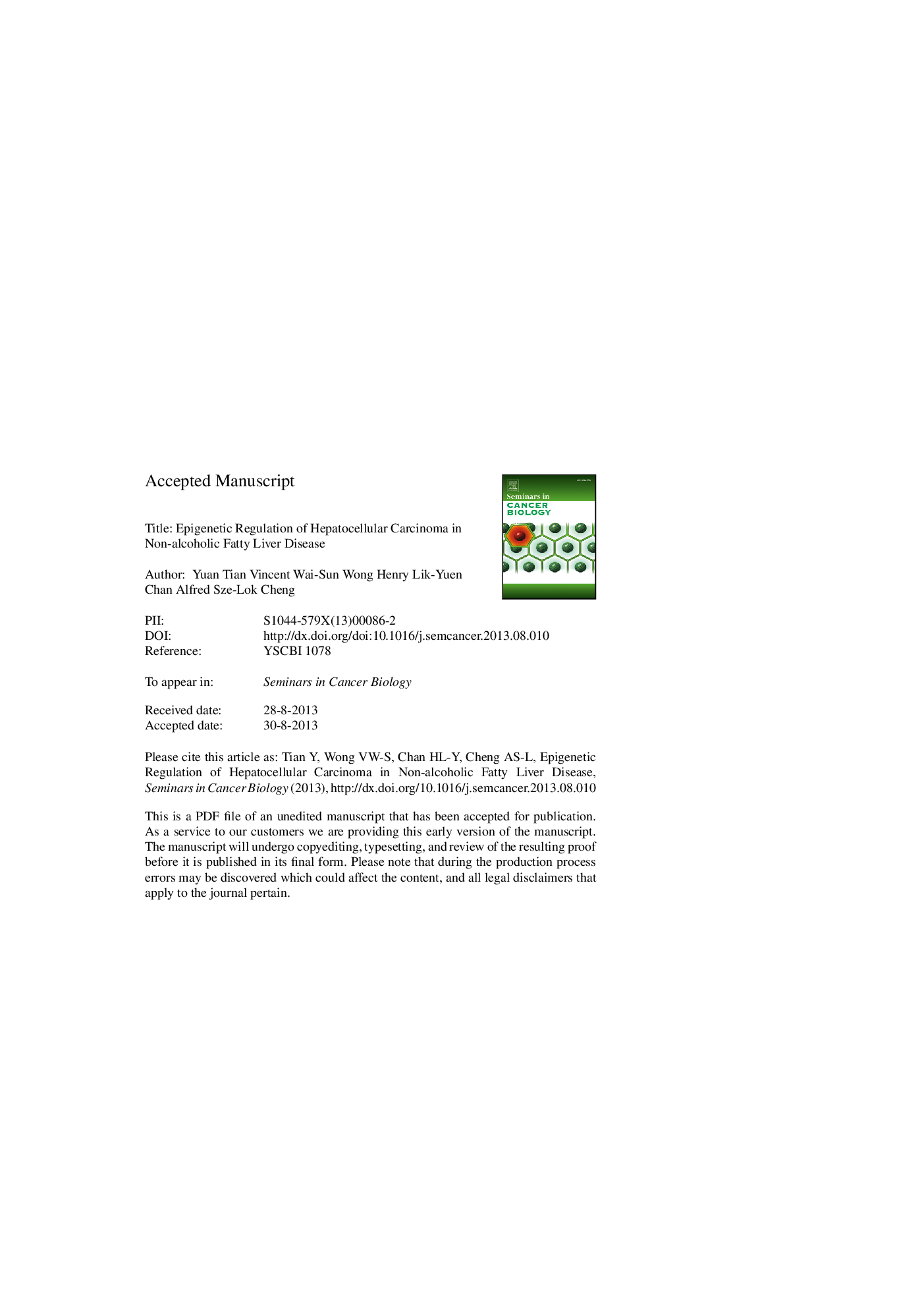| Article ID | Journal | Published Year | Pages | File Type |
|---|---|---|---|---|
| 10845631 | Seminars in Cancer Biology | 2013 | 43 Pages |
Abstract
Emerging evidence that epigenetics converts alterations in nutrient and metabolism into heritable pattern of gene expression has profound implications in understanding human physiology and diseases. Non-alcoholic fatty liver disease (NAFLD) is the hepatic manifestation of metabolic syndrome including obesity and diabetes which elevate the risk of hepatocellular carcinoma (HCC) especially in male. This review focuses on the molecular connections between metabolic dysfunction and aberrant epigenetic alterations in the development of HCC in NAFLD. The metabolites derived from excessive insulin, glucose and lipid may perturb epigenetic gene regulation through DNA methylation, histone modifications, and RNA interference, leading to activation of pro-inflammatory signaling and deregulation of metabolic pathways. The interplay and crosstalk of chromatin-modifying enzymes, microRNAs, signaling pathways and the downstream transcription factors result in epigenomic reprogramming that drives hepatocellular transformation. The interactions between sex hormone pathways and the epigenetic machineries that influence chromatin states in NAFLD provide potential molecular mechanisms of gender disparity in HCC. A deeper understanding of these connections and comprehensive molecular catalog of hepatocarcinogenesis may shed light in the identification of druggable epigenetic targets for the prevention and treatment of HCC in obese or diabetic patients.
Keywords
Related Topics
Life Sciences
Biochemistry, Genetics and Molecular Biology
Biochemistry
Authors
Yuan Tian, Vincent Wai-Sun Wong, Henry Lik-Yuen Chan, Alfred Sze-Lok Cheng,
